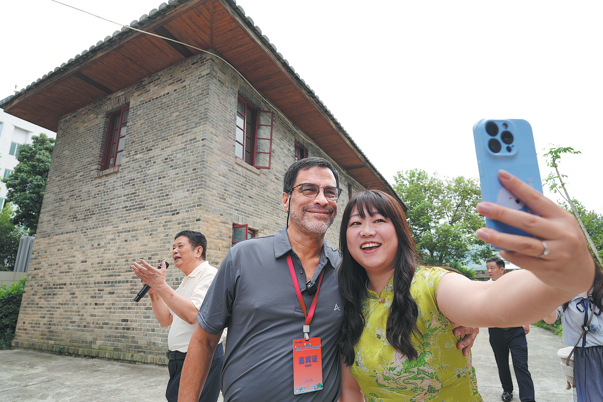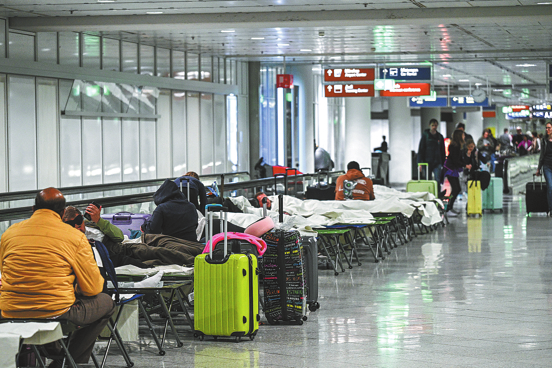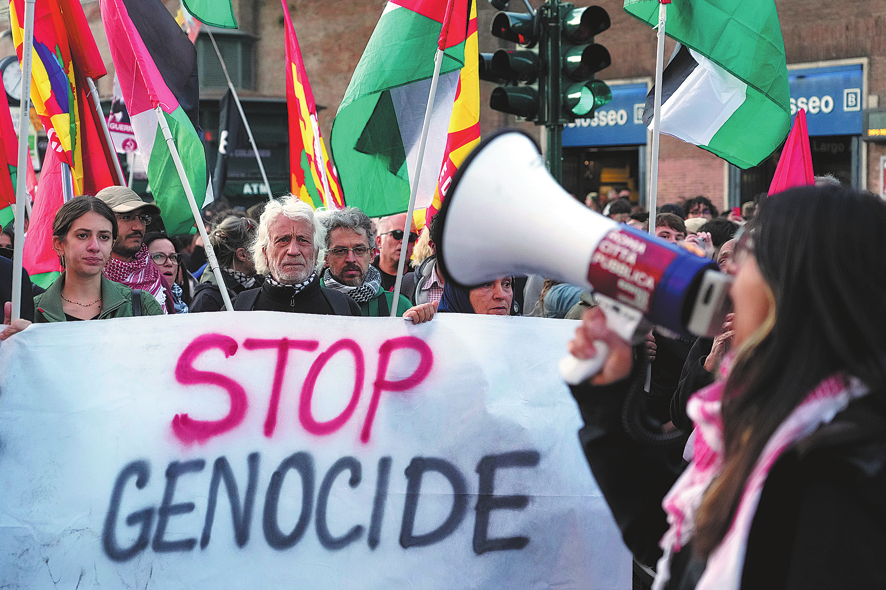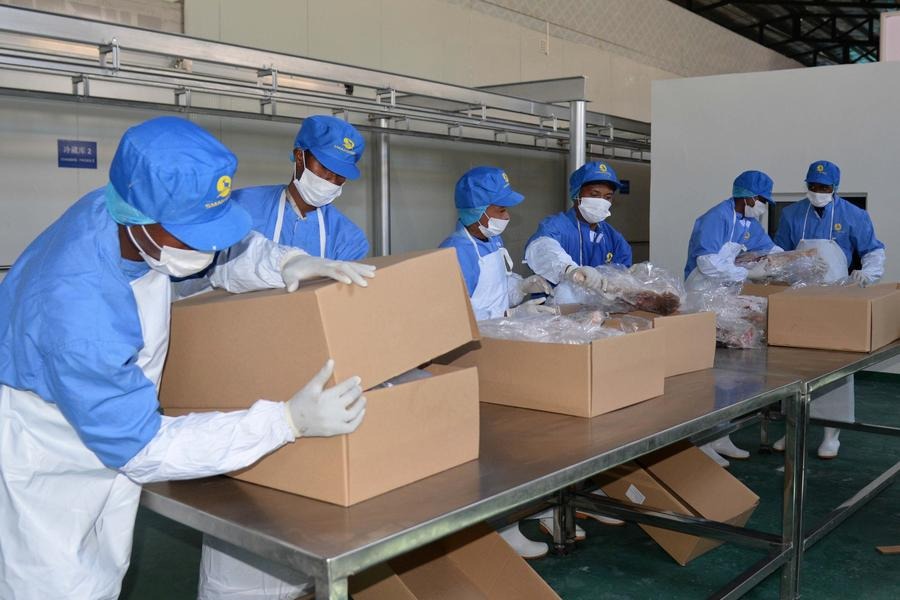Possible graves found at former schools

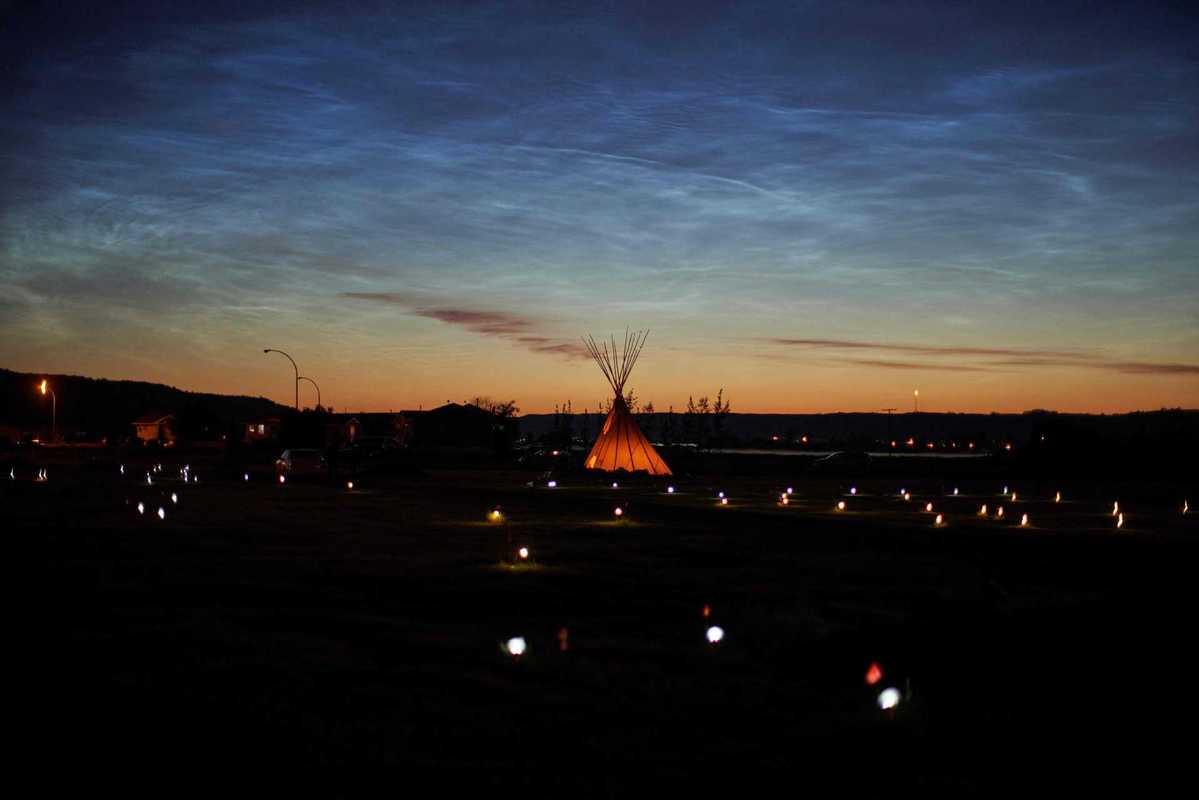
A Saskatchewan First Nation in Canada has announced a discovery of 54 potential unmarked graves on the grounds of two former residential schools, calling it a "somber" day.
According to Ted Quewezance, the former chief of the First Nation and a residential school survivor, the finding validated their oral history.
"The locations we're scanning were identified by survivors and knowledge keepers from oral history," said Quewezance, who spoke Tuesday at a press conference hosted at Keeseekoose First Nation in 235 kilometers (146 miles) northeast of Regina.
Guided by the oral history shared by survivors and knowledge keepers, the First Nation used ground-penetrating radar to search the grounds of two residential schools and found 54 "hits" — 42 at Fort Pelly and 12 at St. Philips.
Both schools were run by the Catholic Church.
The former Fort Pelly Residential School operated from 1905 until it closed in 1913. The principal was fired in 1911 after it was reported he was drunk and threatening everyone at the school.
St. Philips Residential School opened in 1928 and closed in 1969. The school was found to have had a widespread problem with sexual and physical abuse, according to the Truth and Reconciliation Commission (TRC).
Saskatchewan Lieutenant Governor Russ Mirasty said the discovery is "essential" to revealing the truth about the schools.
"It's important to acknowledge the courage of those that are willing to stand up here, and have in the past, to share their stories, to inform us so that we know the truth," said Mirasty, noting the graves could belong to children who were murdered and also hold evidence of crimes committed, but they didn't have answers yet.
"It is a very tough time for us," said Chief Lee Kitchemonia. "That's got to be the most hurtful part that we had unmarked graves in our community. … Somebody has to be held accountable for it."
Assembly of First Nations National Chief RoseAnne Archibald said the federal government and churches must be held accountable for what happened at residential schools.
"These residential institutions of assimilation and genocide tore apart our families. They tore at the very social fabric of our communities and our nations," Archibald said at Tuesday's virtual conference.
Archibald said she doesn't want to use the word "school" anymore when talking about residential schools, as tens of thousands of Indigenous children were forced to attend the institutions, and thousands died in there.
Federal Crown-Indigenous Relations Minister Marc Miller, who also joined the event called Canada's ongoing shame in the face of these findings is "devastating".
"Today is a painful reminder of the abuse and the lasting pain inflicted on so many children, their families and their communities," said Miller. "The stories of the children who never returned home from residential schools must be remembered and honored."
















